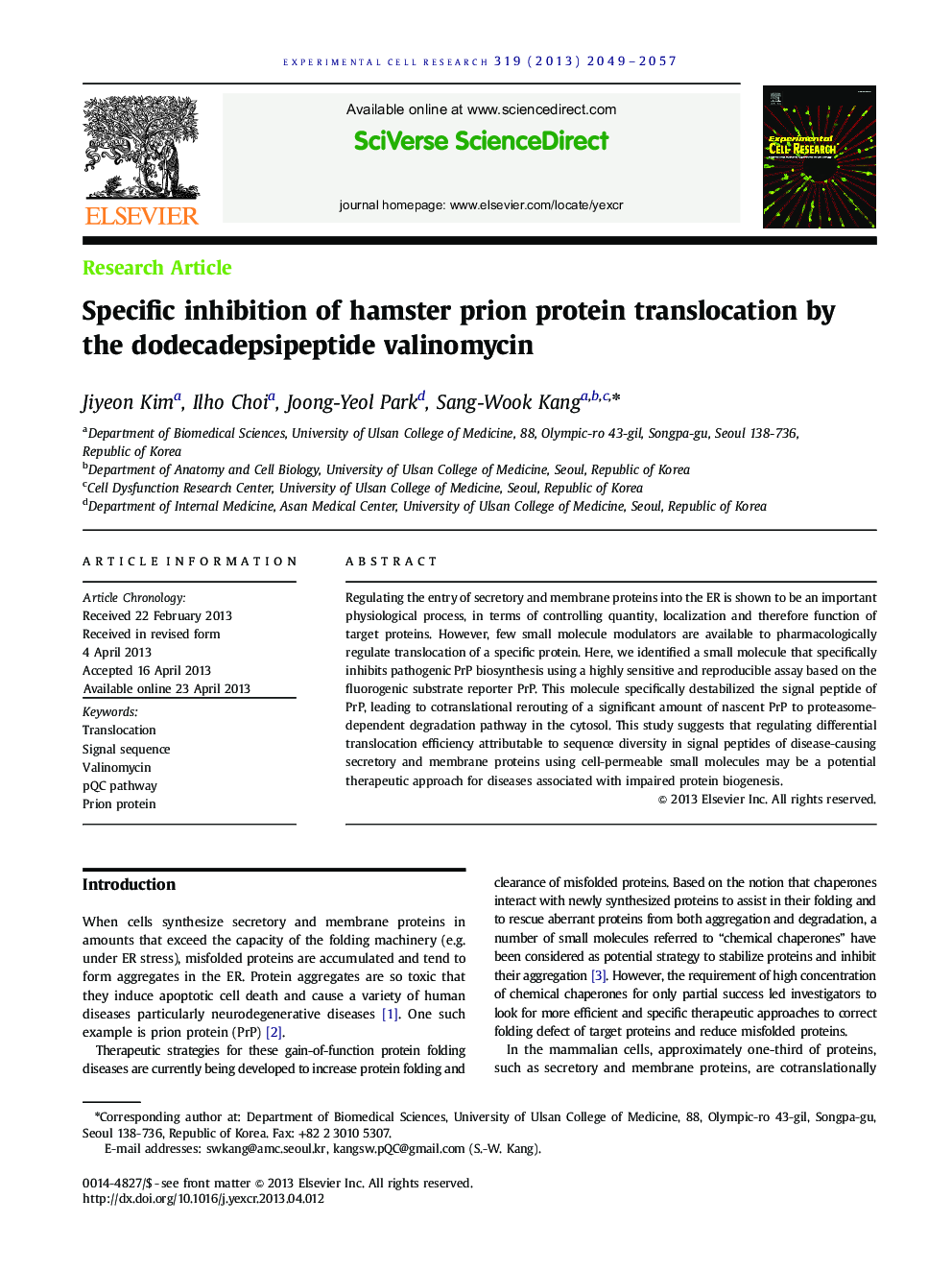| Article ID | Journal | Published Year | Pages | File Type |
|---|---|---|---|---|
| 10904234 | Experimental Cell Research | 2013 | 9 Pages |
Abstract
Regulating the entry of secretory and membrane proteins into the ER is shown to be an important physiological process, in terms of controlling quantity, localization and therefore function of target proteins. However, few small molecule modulators are available to pharmacologically regulate translocation of a specific protein. Here, we identified a small molecule that specifically inhibits pathogenic PrP biosynthesis using a highly sensitive and reproducible assay based on the fluorogenic substrate reporter PrP. This molecule specifically destabilized the signal peptide of PrP, leading to cotranslational rerouting of a significant amount of nascent PrP to proteasome-dependent degradation pathway in the cytosol. This study suggests that regulating differential translocation efficiency attributable to sequence diversity in signal peptides of disease-causing secretory and membrane proteins using cell-permeable small molecules may be a potential therapeutic approach for diseases associated with impaired protein biogenesis.
Related Topics
Life Sciences
Biochemistry, Genetics and Molecular Biology
Cancer Research
Authors
Jiyeon Kim, Ilho Choi, Joong-Yeol Park, Sang-Wook Kang,
